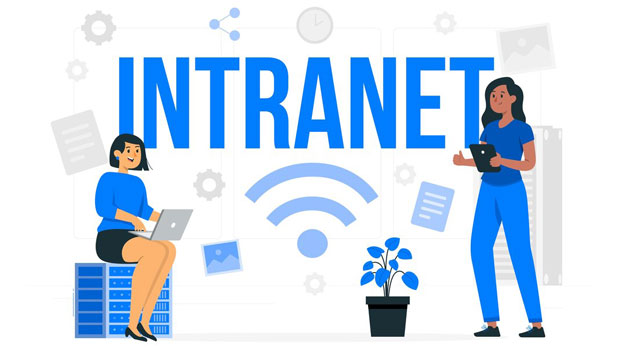In today's digital world, businesses and individuals rely heavily on ip proxy pools for various reasons, including ensuring anonymity, accessing geo-restricted content, and performing web scraping activities. However, with numerous IP proxy pool providers available globally, selecting the right one is crucial for optimal performance and security. Evaluating their quality metrics is key to determining which provider can best meet your needs. This article delves into the essential factors to consider when assessing the quality of global IP proxy pool providers, such as reliability, speed, IP diversity, security, and customer support. These factors will help guide decision-making, ensuring that your chosen provider aligns with your goals and provides value for your investment. 1. Reliability and UptimeReliability is one of the most important metrics when choosing an IP proxy pool provider. It is essential to ensure that the proxies are consistently available and stable. High downtime can lead to interruptions in service, affecting business operations or personal activities that rely on uninterrupted connectivity.When evaluating reliability, look for providers with a proven track record of uptime. Ideally, they should offer at least a 99.9% uptime guarantee. You can verify this by reading reviews, seeking testimonials from current users, or even conducting your own trial tests. Additionally, consider if the provider offers a service-level agreement (SLA) that outlines the minimum uptime and compensation for failure to meet these standards.2. Speed and LatencyThe speed and latency of proxies are crucial for activities that require fast internet connections, such as web scraping, browsing, or accessing geo-restricted content. Slow proxy speeds can significantly hinder performance, leading to delays and timeouts, which can be frustrating and detrimental to productivity.To evaluate speed, consider the geographic distribution of the proxy servers. A provider with a broad network of proxies across multiple countries will likely provide better speeds and lower latency. Test the response times from various locations to get a sense of how fast the proxies perform under different network conditions. Additionally, check whether the provider offers features like automatic proxy rotation and load balancing to maintain speed even during peak usage periods.3. IP Diversity and Pool SizeIP diversity and pool size play a significant role in enhancing the performance of IP proxy services. A large pool of IP addresses reduces the chances of encountering issues such as IP blocks, rate limiting, or CAPTCHA challenges. Providers with diverse IPs allow for greater flexibility, ensuring that you can carry out your tasks without interruption.A high-quality IP proxy provider should offer a large pool of both residential and data center IPs. Residential IPs tend to be more reliable and harder to detect compared to data center proxies, as they are associated with real user devices. On the other hand, data center proxies are faster and more cost-effective, making them ideal for high-volume tasks. A good mix of both types is essential for scalability and security.4. Security and AnonymitySecurity is a critical consideration when selecting an IP proxy pool provider. Proxies that do not prioritize security could expose users to risks such as data breaches, man-in-the-middle attacks, or malware infections. When using proxies, ensuring anonymity is also crucial to protect personal and business data.Look for providers that offer encrypted proxy connections, such as sock s5 proxies, which provide higher levels of anonymity and security compared to HTTP proxies. Additionally, choose providers that have a strict no-logs policy to ensure that your browsing activities are not stored or tracked. Proxies that allow for anonymous browsing help in maintaining privacy and securing sensitive data, especially when conducting activities like web scraping or accessing restricted content.5. Customer Support and Service QualityExcellent customer support is essential when using IP proxy services. Issues may arise during usage, and having access to responsive and knowledgeable customer service is crucial to resolving problems quickly. A provider with strong customer support ensures that you can get help whenever you encounter difficulties, minimizing downtime and frustration.When assessing customer support, consider the following factors: the availability of support channels (such as live chat, email, and phone support), response time, and the expertise of the support staff. Check for 24/7 support, especially if you operate in different time zones. Additionally, some providers offer additional support options like dedicated account managers or technical consultants, which can be valuable for businesses with complex needs.6. Pricing and FlexibilityPricing is always a significant consideration when evaluating IP proxy pool providers. While it may be tempting to go for the cheapest option, this could compromise the quality and reliability of the service. On the other hand, premium services may offer better performance, but at a higher cost.A good provider should offer a transparent pricing structure with clear details on bandwidth limits, usage restrictions, and any additional charges for extra features. Look for flexible pricing plans that allow you to scale up or down based on your needs. Providers that offer pay-as-you-go or monthly subscription models may be more suitable for businesses with fluctuating proxy usage. Additionally, some providers offer free trials or money-back guarantees, giving you an opportunity to test the service before committing long-term.7. Scalability and Additional FeaturesScalability is an important factor to consider, especially if you plan to increase your usage of ip proxies over time. A good provider should offer plans that can grow with your business. Whether you are scaling up for large-scale web scraping, conducting market research, or supporting an expanding team, the provider should be able to accommodate increased traffic and usage demands without sacrificing performance.Beyond basic proxy services, look for additional features such as advanced IP rotation, residential proxy pools, SOCKS5 support, and automated proxy management tools. These features can add value and streamline your operations. Furthermore, consider whether the provider offers dedicated proxies for specific needs, such as accessing specific regions or performing security-sensitive tasks.Evaluating the quality metrics of global IP proxy pool providers involves considering multiple factors, from reliability and speed to security, IP diversity, and customer support. Each metric contributes to ensuring that the proxy service meets your performance, security, and scalability needs. By thoroughly assessing these aspects, you can make an informed decision when selecting a provider, ensuring that you choose one that delivers reliable, secure, and high-performance proxies. Whether you are a business looking to optimize web scraping or an individual seeking anonymity online, the right IP proxy provider can make a significant difference in your digital experience.
Nov 08, 2025



































































